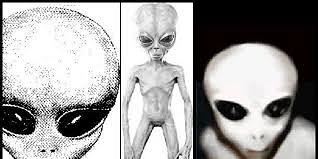From Sightings to the Silver Screen: Why Is Pop Culture Obsessed with Aliens?
Scientists and authors have theorized about the existence of alien species either on Earth or on other celestial bodies for millennia. Lucian, an author who lived in the 2nd century, was among the first whose writings mentioned people living outside the Earth - in his "True History", he claims to have visited the Moon and to have met its people in an armed conflict with those living in the Sun over the colonization of the Morning Star. The idea of other worlds and the intelligent beings inhabiting them has been used quite often in the literature over the centuries, both by scholars like Johannes Kepler and Camille Flammarion to poets and authors like Henry Moore and J.-H. Rosny.
Aliens have become more frequent topics in the late 19th and the early 20th century, thanks to authors like H. G. Wells and Edgar Rice Burroughs, slowly seeping into the emerging art of cinematography (Georges Méliès' "Le Voyage dans la Lune", the first science fiction movie ever made, features elenites inhabiting the surface of the Moon). From there on, they were unstoppable: friendly and less friendly aliens have invaded the silver screen, TV screens, and all other forms of modern entertainment, including the game library of All Slots Canadian casino
Video games have proven to be a very fertile soil for alien species. The science fiction and the fantasy genre always builds on different species inhabiting the same lands - or the same sectors of space. Sometimes they are antagonists, other times they are either neutral bystanders or helpful forces - but they are always there. Even simple,casual games like the ones you'll find at the All Slots Canada often feature alien species - think games like Scary Friends, with reels inhabited by various alien "monsters", or Max Damage and the Alien Attack, the All Slots' take on the Space Invaders genre.
So why is the popular culture obsessed with aliens?
First of all, because aliens offer creators a never-before-seen freedom to create. They can let their imagination roam free and think of appearances and habits, traditions and rituals, technology and architecture that is completely different from our own, built on a completely different set of rules.
But aliens also represent a perfect tool for authors and movie makers to emphasize on different states and attitudes of the human race without pointing a finger on nations, races, political parties, and religious groups. Jonathan Swift's "Gulliver's Travels" was a massive satire, either mocking various aspects of his times' British society or presenting a different one, namely that of the Houyhnhnms, ruled by reason that doesn't even have a word for lies. In our times, many alien species presented on-screen represents a flaw - or multiple flaws - of humanity and human society as a whole, dressed up as an alien species in order not to directly attack anyone.
Comments
There are 0 comments on this post













